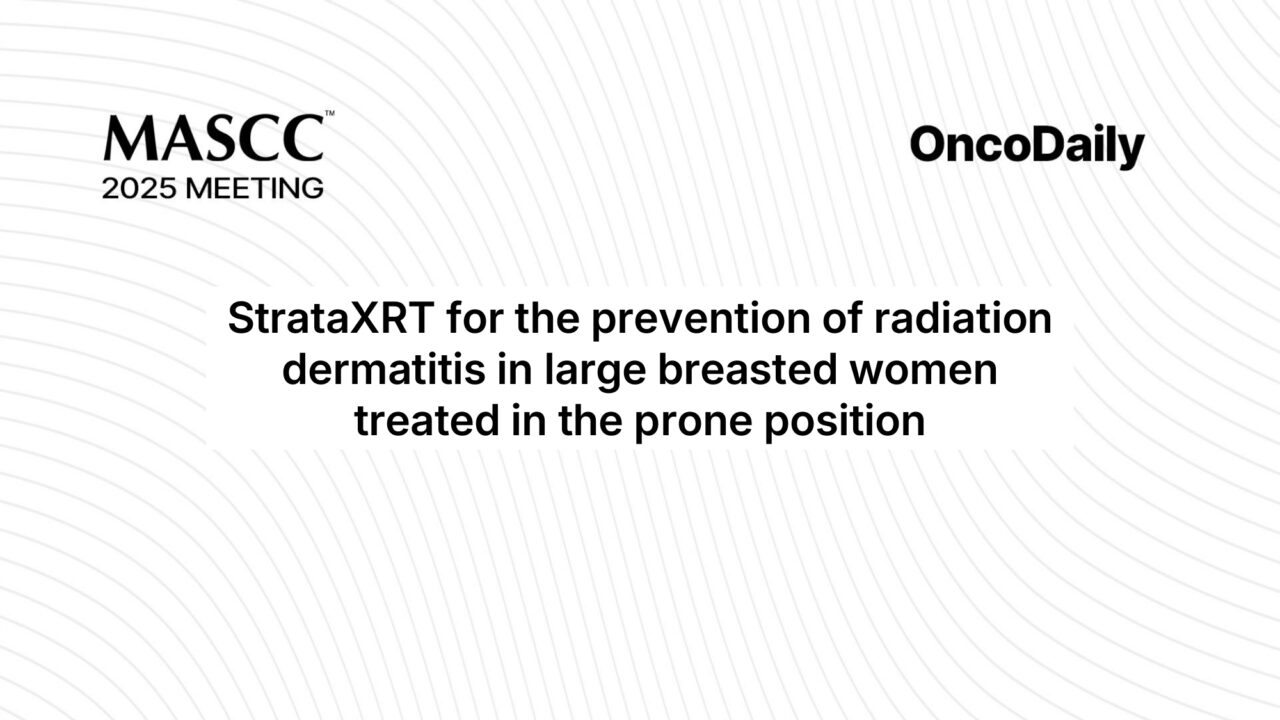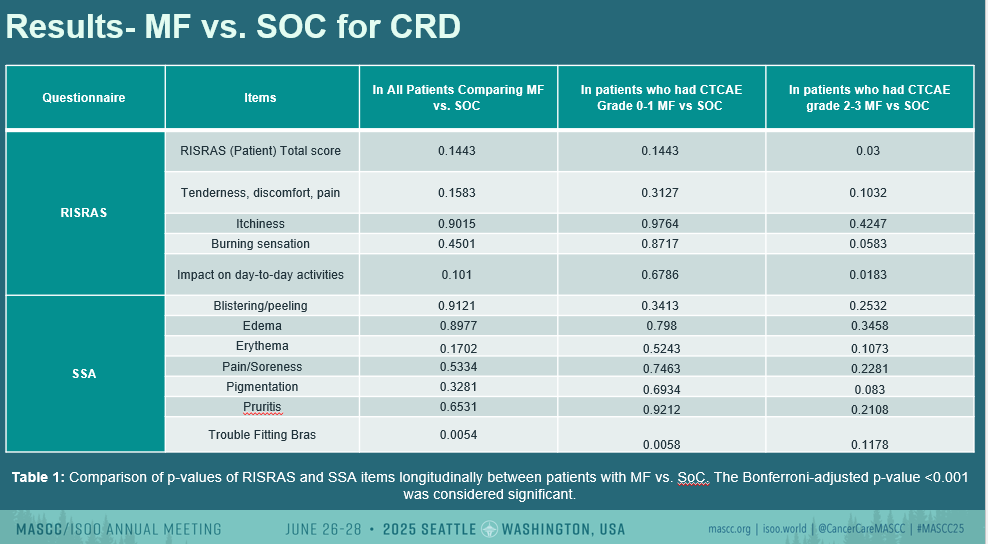
MASCC 2025 Highlights: StrataXRT Prevents Severe Radiation Dermatitis in Large-Breasted Women Undergoing Prone Breast Radiotherapy
At the MASCC 2025 Annual Meeting, Dr. Sarah Bayrakdarian and her colleagues from Canada presented a prospective study evaluating the effectiveness of StrataXRT, a silicone-based, film-forming gel, in reducing acute skin toxicity in large-breasted women undergoing adjuvant prone breast radiotherapy. This subgroup of patients is known to have a higher risk of radiation dermatitis (RD), particularly due to increased skin folds and friction in the inframammary region.

Background
Radiation dermatitis remains one of the most common and bothersome toxicities during breast radiation therapy, with up to 77% of large-breasted women developing Grade 2 RD and 8% experiencing Grade 3 RD when treated with moisturizers alone. Acute radiation dermatitis is not only physically uncomfortable—manifesting as erythema, itching, and pain—but also affects patients’ quality of life and may lead to treatment delays or interruptions.
Building on the team’s previous work exploring interventions like Mepitel Film, the focus of this study was to assess the use of StrataXRT for prevention and symptom control in this high-risk population.
Methods
A single-arm prospective study was conducted in large-breasted patients receiving either conventional or hypofractionated radiotherapy (40 Gy in 15 fractions) in the prone position, a technique known to reduce skin folds and cardiac exposure.
StrataXRT was applied twice daily from the start of RT through two weeks post-RT. Skin toxicity was assessed using:
- Common Terminology Criteria for Adverse Events (CTCAE)
- Radiation-Induced Skin Reaction Assessment Scale (RISRAS)
- Skin Symptom Assessment (SSA)
Photographs were taken at baseline, the last day of treatment, and two weeks post-treatment. Patients were also contacted monthly up to 3 months post-RT for continued patient-reported outcome assessments.
Results
A total of 30 patients aged 40–68 were enrolled, all receiving 40 Gy in 15 fractions, with 18 patients (60%) also receiving a boost. The findings were encouraging:
- 50% developed Grade 2 RD (CTCAE)
- 0% developed Grade 3 RD
- No adverse events were attributed to StrataXRT use

The worst SSA and RISRAS scores were observed at the 2-week follow-up, indicating peak symptom severity post-treatment. Common symptoms included itching, pain, pigmentation, and blistering. Importantly, most symptoms resolved by the 3-month follow-up, with pigmentation being the most persistent residual effect.
Safety and Patient Experience
No patients experienced treatment-related adverse events with StrataXRT, and patient compliance was high. While formal long-term safety data are still needed, the study supports the use of StrataXRT as a well-tolerated option for mitigating RD severity in a high-risk subgroup.
Comparison to Prior Research
The authors previously participated in a randomized controlled trial comparing Mepitel Film (MF) to standard moisturizers for ARD prevention. That trial showed a 45% relative reduction in Grade 2 or 3 RD with MF use. However, a long-term follow-up study found no significant difference in chronic radiation dermatitis (CRD) symptoms between MF and standard care, though pigmentation and pruritus persisted in some patients.
The current StrataXRT study differs in its focus on short-term toxicity in large-breasted patients, suggesting that early intervention may play a crucial role in preventing more severe acute reactions, which may reduce the risk of CRD down the line.
Conclusion
StrataXRT appears to be a safe and effective tool for reducing Grade 3 radiation dermatitis in large-breasted women treated in the prone position. While half of the participants still experienced Grade 2 RD, the absence of more severe reactions and the favorable patient experience underscore its potential clinical value.
The authors recommend larger randomized studies to validate these findings and to determine whether StrataXRT may reduce both acute and chronic skin toxicity in broader breast cancer populations.
-
Challenging the Status Quo in Colorectal Cancer 2024
December 6-8, 2024
-
ESMO 2024 Congress
September 13-17, 2024
-
ASCO Annual Meeting
May 30 - June 4, 2024
-
Yvonne Award 2024
May 31, 2024
-
OncoThon 2024, Online
Feb. 15, 2024
-
Global Summit on War & Cancer 2023, Online
Dec. 14-16, 2023
